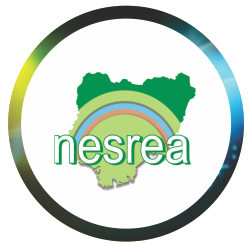Our Functions
NESREA has responsibility for the protection and development of the environment, biodiversity conservation and sustainable development of Nigeria’s natural resources in general and environmental technology including coordination and liaison with relevant stakeholders within and outside Nigeria on matters of enforcement of environmental standards, regulations, rules, laws, policies and guidelines.
Some functions of the Agency are to:
- enforce compliance with laws, guidelines, policies and standards on environmental matters;
- coordinate and liaise with, stakeholders, within and outside Nigeria on matters of environmental standards, regulations and enforcement;
- enforce compliance with the provisions of international agreements, protocols, conventions and treaties on the environment including climate change, biodiversity conservation, desertification, forestry, oil and gas, chemicals, hazardous wastes, ozone depletion, marine and wild life, pollution, sanitation and such other environmental agreements as may from time to time come into force;
- enforce compliance with policies, standards, legislation and guidelines on water quality, Environmental Health and Sanitation, including pollution abatement;
- enforce compliance with guidelines, and legislation on sustainable management of the ecosystem, biodiversity conservation and the development of Nigeria’s natural resources;
- enforce compliance with any legislation on sound chemical management, safe use of pesticides and disposal of spent packages thereof;
- enforce compliance with regulations on the importation, exportation, production, distribution, storage, sale, use, handling and disposal of hazardous chemicals and waste, other than in the oil and gas sector;
- enforce through compliance monitoring, the environmental regulations and standards on noise, air, land, seas, oceans and other water bodies other than in the oil and gas sector;
- ensure that environmental projects funded by donor organizations and external support agencies adhere to regulations in environmental safety and protection;
- enforce environmental control measures through registration, licensing and permitting Systems other than in the oil and gas sector;
- conduct environmental audit and establish data bank on regulatory and enforcement mechanisms of environmental standards other than in the oil and gas sector;
- create public awareness and provide environmental education on sustainable environmental management, promote private sector compliance with environmental regulations other than in the oil and gas sector and publish general scientific or other data resulting from the performance of its functions; and
- carry out such activities as are necessary or expedient for the performance of its functions.
